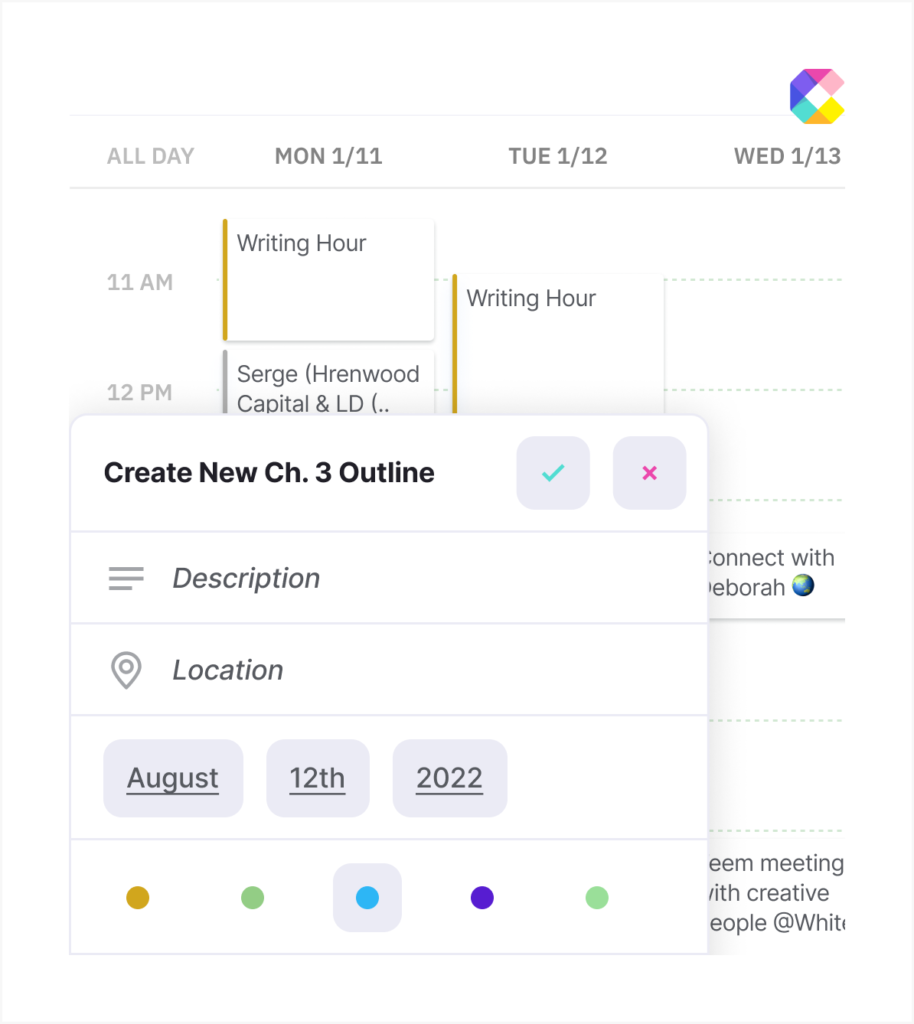How the heck does writing the author bio seem like more work than writing the book? In this article, we give the quick and dirty tips for crafting a masterful author bio that covers everything you need to know, whether you’re new to the author world or a long-time professional. Perfect for people who aren’t sure where to start, people wondering if their current bio is packing a punch, or anyone just wondering about author bios or pen names in general.
Don’t be fooled; a powerful author bio can make a big difference!
And pen names, love them or hate them, they’re also something every author should consider, if only for a moment. There are a multitude of reasons to utilize a pen name, and you might not have thought of them all.
If you’re ready to learn to make an author bio that’ll draw readers like moths to a light, then we’ve got you covered. If you haven’t thought about pen names, or you have but you’re not sure you need one, then keep reading.
Do I need a pen name?
This question might not seem important, but there are articles of teachers losing their jobs when it comes out that they write romance novels, personal stories of people whose so-called friends and family one-starred their books for reasons like a friendship ending, a personal feud, or simply because they didn’t like or agree with the book’s content, and tales of people losing friends and family when their books blew up and they didn’t just start giving those close to them money.
And that’s just the tip of the iceberg. There are so many stories about doxing, author’s personal details being leaked and people threatening their lives, livelihoods, and even their families over the most mundane issues. I’m talking death threats unless an author rewrote a book to keep a character alive that they killed, to obsessive fans parking outside authors’ homes and watching them, to stories of marriages ending because a significant other saw too much of themselves in an unsavory character their loved one wrote.
As simple as this topic seems, taking a deep dive into what might happen if you suddenly become a household name… or if your work flops miserably, could save you a lot of heartache in the future.
Those hard questions you need to ponder.
Here’s the thing: do you 100 percent trust everyone in your life right now to have your best interests at heart?
Can you handle people not liking you?
Are you prepared to lose so-called friends who only ever wanted you to fail and can’t watch you succeed?
Or, on the flip side, can you handle those so-called friends secretly delighting in your misery if your books fail?
Are you looking for fame, or will fame break you?
You need to be totally honest with yourself. No matter what you write, someone, somewhere will hate your work, and they might hate you by extension. Is this a guarantee? Not at all! But it is a possibility. And you’re doing yourself a disservice if you don’t consider all possible outcomes.
Should you use a pen name?
That’s up to you!
There are plenty of reasons to use one and plenty of reasons not to. But I’d recommend you look at people’s stories online and see people’s reasons for choosing a pen name or not, the consequences people have faced for using their real names, and dig deep within yourself to make an informed, well-rounded decision that takes as much information into account as possible.
And I’m not trying to scare you away from using your name, not at all. I simply encourage people to consider all aspects before making a choice.
How can I make my author bio shine?
First things first; an author bio should be in the third person. So instead of saying, “I enjoy writing by firelight under the judgmental glare of my cat,” say, “Jill Valentine enjoys writing by firelight under the judgmental glare of her cat.”
Now, if you’re a fiction author, your bio will be structured differently than a nonfiction author’s bio. We’ll start with tips for fiction authors.
Fiction author bio tips:
Start with your name and a comment about you. It can be writing related, personal, or even a joke. The idea is to interest readers and make them want to know more about you, or to give them a sense of who you are.
Follow up with more lines about yourself; any accolades, relevant information, or humor, depending on what you write. Making this shine will give your readers a sense that you can spin a story in about two hundred words, which will draw them to your book even more.
I tend to break author bios into two sections: the introduction, then the more personal info. It’s not an exact science, but it works. The bio should start with your first or last name, mention where you live, light personal details like if you have children or pets, your hobbies or goals, and what motivates you to write. So in the end, it might look something like this:
Jill Valentine enjoys writing by firelight under the judgmental glare of her cat. Which is perfect, because she writes humorous cozy mysteries where a lazy cat judges her owner until she solves crimes. You know what they say, art sometimes imitates life… or something like that. While she’s always been a fan of true crime, she—Jill, not her cat Purrl—didn’t even consider writing until her mid-life crisis. Now she’s making up for lost time, and when we asked her to blink twice if she needed help, she glanced at Purrl and shook her head.
Jill grew up in the Pacific Northwest near the ocean. Now she lives in California, but she still visits the ocean as often as Purrl will let her out of the house. Needy cats, you know? When she’s not writing, Jill can be found reading most kinds of books, baking cookies for her book club without telling them one single cookie has laxatives instead of chocolate chunks, and causing the kind of gentle mayhem that makes Purrl proud. She hopes to delight and entertain readers of all ages while opening hearts and minds to her colorful storytelling style.
Now, this tells you exactly what kind of person Jill is, uses a light humor that’ll help readers understand her humor, and uses the kinds of details that will endear her to readers. By weaving a story with words, she’s encouraging readers to give her books a chance. In essence, using an author bio can help you freely advertise your books.
If you really hate talking about yourself, you can always hire out someone to write this for you. Make sure you guide your copywriter so they can deliver exactly what you want to see.
Nonfiction author bios:
Start with your name, establish your credentials, and include pertinent accolades, knowledge, certifications, and anything else you can think of to authenticate your authority on the topics you write about. There is much less need to be personable. Nonfiction bios tend to lean toward being professional in every line.
How long should my author bio be?
This is a great question!
I tend to recommend no more than two hundred words, but of course, this is more of a guideline than a hard and fast rule. You will need to potentially check platforms you plan to publish on and make sure they don’t restrict word count to a target range.
It’s also important to plan other factors, like if your author bio is going on the back of the book—will it fit?
Honestly, word count in author bios is similar to writing books; make sure you have just enough words to convey the information you need to and not a word more. If that means five hundred words for your detailed nonfiction bio, then go for it. Readers might not read something that lengthy, but for someone who needs to know those details, you’ll be helpful. If you’re a nonfiction author and have a three-sentence author bio that just nails everything, then rock it! There’s no one right way, and anyone that says otherwise is lying to you.
Don’t stress this part! Nonfiction authors, show that you’re an expert in your field. Fiction authors, have fun talking about yourself, imagine engaging with readers, and try to find the gold nuggets of info about you that they’ll love, connect with, or enjoy reading—it’s as simple as that!
What if I use a pen name?
This is where things get really, really fun for fiction authors, and more difficult for nonfiction authors who need to establish credentials or authority on a topic.
Fiction authors, if you’re using a pen name, make it up! Fit the tone and style of writing to your storytelling style. Make yourself the character in your novel and pretend they’re telling their story. Make up something fun like the author bio I wrote out above. Have fun with your author bio, make it fit your genre and style, and make it something readers will want to read.
Nonfiction authors, you get the short end of the stick when it comes to using a pen name and establishing yourself as someone to listen to. When people can’t check your credentials, it can make you seem like a risk. There are ways around this, of course, like using your initials on the cover, but listing your very real info. Or just use a pen name and your real credentials. Under it all, no matter what moniker you use, you are still that serious professional helping people at the end of the day. So keep up the good work!

Goals Calendar
The goals calendar will help keep you on track and ensure deadlines are met. It will keep you accountable to your goals and help ensure timely story completion.



